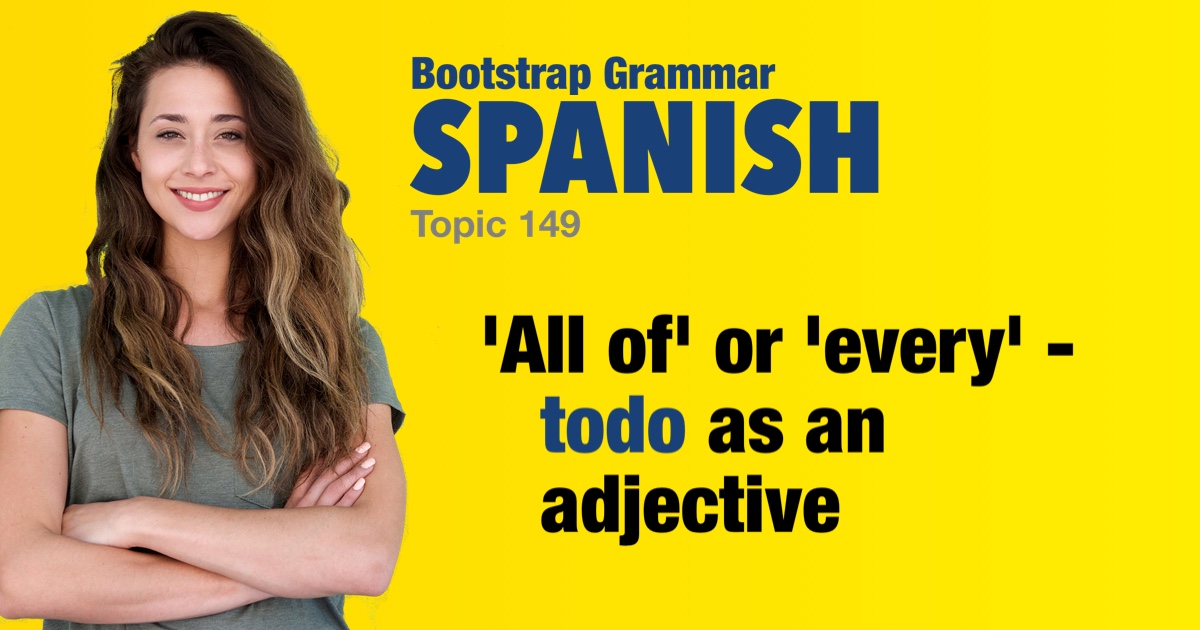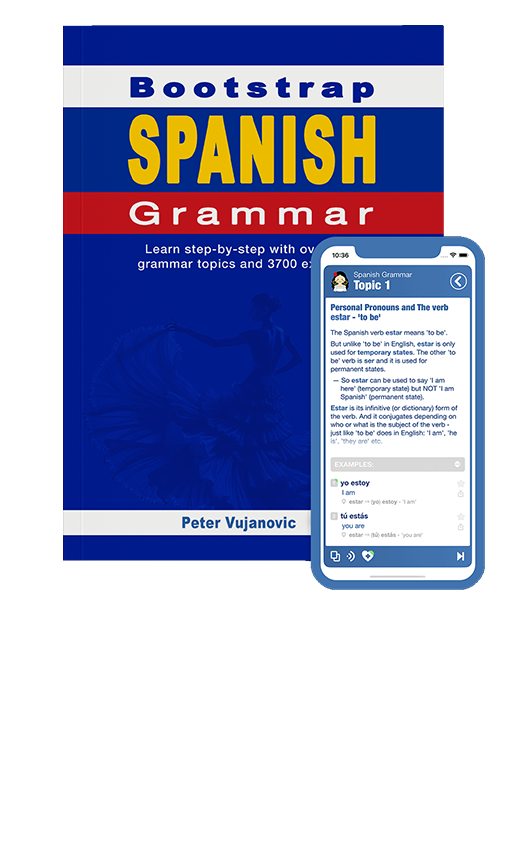Spanish grammar - 'All of' or 'every' - todo as an adjective |
|||
|
|||
The word todo can be used as an adjective, an adverb, and a noun. As an adjective, the word todo means 'every one of' or 'all of' and is commonly followed by an article or possessive. It should agree in gender and number. • todo - masculine singular • toda - feminine singular • todos - masculine plural • todas - feminine plural The idiomatic todo el mundo (literally 'all of the world') means 'everyone'. |
| Examples: | |
|
Tú conoces a todos sus amigos.
You (familiar) know all his friends. |
|
|
Tú tienes que intentar hablar español todo el tiempo.
You (familiar) have to try to speak Spanish all the time. |
|
|
Ella terminó todo el trabajo.
She finished all the work. |
|
|
Nosotros vimos toda la película.
We watched the whole movie. |
|
|
A todos los niños les gustan los dulces.
All the children like sweets. |
|
|
¿Tú has leído todos los libros?
Have you (familiar) read all the books? |
|
|
Yo comí toda la pizza.
I ate the whole pizza. |
|
|
Todos los estudiantes aprobaron el examen.
All the students passed the exam. |
|
|
Nosotros viajamos por todos los países de Europa.
We traveled through all the countries of Europe.
|
|
|
Ella escuchó toda la canción.
She listened to the whole song. |
|
|
Él organizó toda la fiesta.
He organized the whole party. |
|
|
¿Tú terminaste todos los deberes?
Did you (familiar) finish all the homework?
|
|
|
Tú tienes que intentar hablar francés todo el tiempo.
You (familiar) have to try to speak French all the time. |
|
|
Su perro ladra todo el día.
Their dog barks all day. |
|
|
Aprendo francés todo el día.
(I) learn French all day. |
|
|
Toda mi familia es muy atlética.
My whole family is very athletic.
|
|
|
Él quiere vivir en París toda su vida.
He wants to live in Paris all his life. |
|
|
Él no logró terminar todos sus deberes.
He didn't manage to finish all his homework. |
|
|
Todos mis amigos han llegado.
All my friends have arrived. |
|
|
Ellos recogieron todas estas flores.
They collected all these flowers.
|
|
|
Todo ciudadano tiene derecho a votar.
Every citizen has the right to vote.
|
|
|
He leído todo el libro.
(I) have read the entire book. |
|
|
Todo el mundo sabe la respuesta.
Everyone knows the answer. |
|
 |
|



